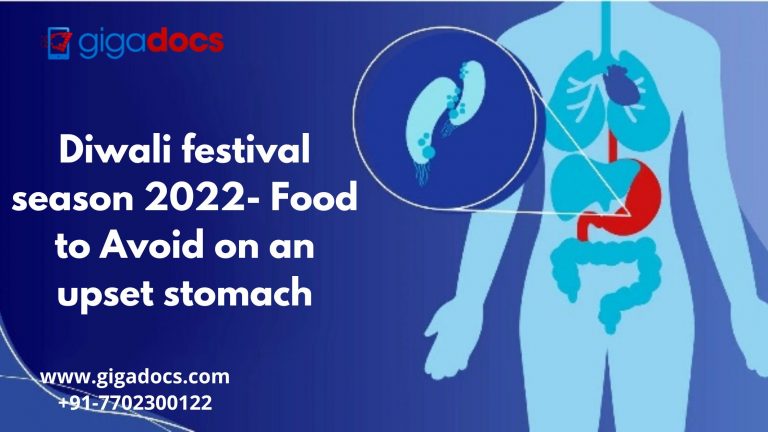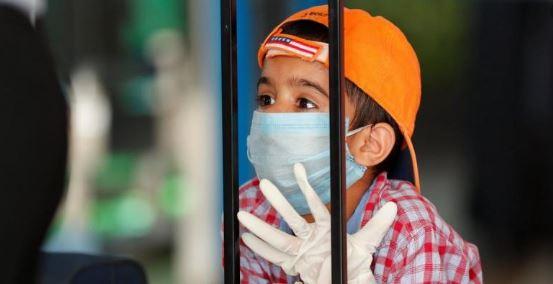Every month in India has its festivals and other major events. This is especially true this October as this month brings joy and festivities and important festivities to celebrate with our friends and family. The monsoon season ends in October, and everyone gets excited about the upcoming festivals across the country. It is also crucial for farmers because it is the final month of crop season before harvesting.
In this article, Gigadocs compiles a list of some of the most important festivals and health precautions to take to keep healthy and enjoy the festivities with your family and friends-
Navratri/ Durga Puja/ Dasara / Vidhya-Aarambham/ Batukamma Panduga/Bommai Golu
One of the most important festivals of India, Navratri is a nine-day celebration in which fasting forms an integral part of the Navratri celebration. While fasting for nine days can be difficult, proper planning can help you reap spiritual benefits from this holy period.
Health Tips to Follow :
- Staying hydrated while fasting helps you maintain ideal health. Pick from the fluids of your choice, including low-fat milk, fresh fruit juice, or plain water. Keeping yourself hydrated helps you maintain an adequate level of vitamins and minerals in your body.
- Reduce stress and increase rest. The festive celebrations and fasting may exhaust you. As a result, another important health tip to remember is to avoid unnecessary stress. Don’t overwork your body and get plenty of rest when needed.
- Make a meal plan for each day. Fasting calls for an important change in eating habits; however, you can maintain your energy levels with nutritious meal plans and wholesome eating habits.
Chhath Puja
Chhath puja is a famous festival in northern India, particularly in the eastern parts of Uttar Pradesh and Bihar. Chhath puja is a four-day celebration honoring the Usha and the Sun God. It is celebrated six days after Diwali and is marked as respect to thank the Sun god for life sustenance. Patients with compromised kidneys should not attempt this fast.
Health Tips to follow:
- Feasts should never be used to break a fast. Traditionally, this fast is broken with ginger and jaggery.
- Don’t eat in public places. They carry a host of infections. Break your fast with home-cooked meals or prasad from the kitchen.
Diwali/ Naraka Chaturdashi
Diwali, the festival of lights, glitters up homes and hearts, and the festival spreads the message of friendship and unity. This festival is of good fortune, success, knowledge, and hope. It is regarded as the day to light within us, the lamp of power, knowledge, and virtue. Each of the five days of this lively festival teaches us something and serves a purpose.
Health Tips to follow:
- No one can resist the abundance of delicious food that Diwali brings. Do not abstain from your favorite dishes; however, make it a point to drink plenty of water to stay hydrated, and the sweltering October heat does not affect you.
- Noise pollution harms pets as well. Take care of your pets by keeping them home, drawing curtains, and covering their ears if possible.
- Festivals can only be thoroughly enjoyed if you are in good health. Do not skip your exercise routine. Take advantage of the pleasant October weather by going for a morning walk or practicing yoga.
Which foods to eat and avoid while recovering from a holiday stomach infection?
Festivals mean eating outside and at odd hours, which is bad for your stomach health. Stomach flu can wreak havoc on your body. Remember that our overall health is inextricably linked to our digestive health. As a result, the stomach flu can significantly impact physical, mental, and emotional health.
The stomach flu, also known as gastroenteritis, is typically caused by any virus that attacks the digestive system. Bacteria can also cause it in contaminated water and food. Nausea, vomiting, diarrhea, stomach cramping, and abdominal pain are all symptoms of stomach flu.
It can be difficult to know what foods to eat when you have stomach flu, especially if you have a stomach upset. Here is a list of ways to treat stomach flu:
- After the festive eating spree, indulge in low-fiber bland foods with no spices or excess oil. For example, try making khichdi with rice and moong dal. It’s easy on the stomach and has a high protein content.
- Drink plenty of fluids to compensate for fluid loss caused by diarrhea and vomiting. Fluids include plain water, coconut water, broth, ginger, peppermint herbal tea, herb-infused water, and electoral water.
- We may believe that eggs are heavy on the stomach but think again. Eggs are high in protein and easy on the stomach, making them an excellent snack for the stomach flu. Eggs are also high in B vitamins and selenium, essential nutrients for the immune system.
Food to Avoid on an upset stomach-
- Raw vegetables, such as salads, can be difficult to digest on an upset stomach.
- Dairy is typically a digestive health irritant, causing inflammation and triggering symptoms.
- Hot foods can cause nausea and vomiting.
- Sugary foods and fruit juices may aggravate diarrhea.
- Fried foods- they are hard-to-digest foods that can aggravate stomach flu symptoms.
- Caffeinated beverages can disrupt sleep, impair digestion, and cause bloating.
Gigadocs for your Stomach Care
Gigadocs provides specialist consultations to aid in the prevention, diagnosis, and treatment of diarrhea, indigestion, constipation, and gastrointestinal disorders.
Your expert consultation for irritable bowel syndrome, abdominal pain, cramping, gas, or constipation is just a phone call away with Gigadocs. Download the Gigadocs app to get expert advice from the best doctors in your area. We wish you a very happy holiday season from everyone at Gigadocs.
Download the Gigadocs App from-
- IOS App – apple.co/2W2iG4V
- Android App – bit.ly/33AQoR




